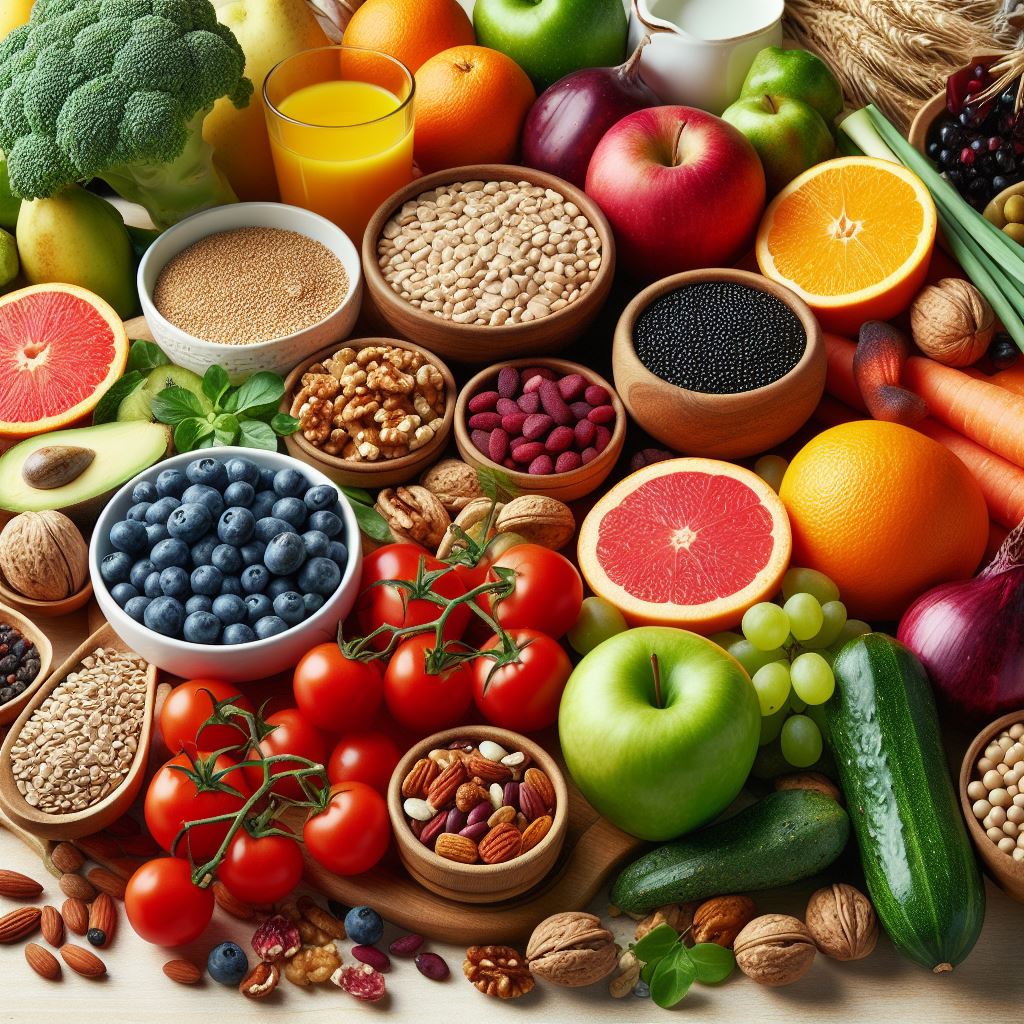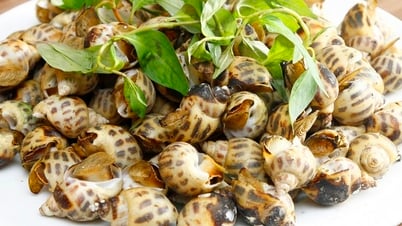By adopting a healthy diet combined with other measures, you can improve the quality of your sleep and reduce snoring.
1. The importance of diet for people who snore
Occasional snoring is nothing to worry about, but for people who snore regularly, it can be a chronic problem that can indicate a medical condition, such as sleep apnea. Poor sleep quality due to snoring can affect dietary choices, leading to cravings for high-calorie, sugary foods and reduced motivation to exercise – all of which can exacerbate obesity and obstructive sleep apnea (OSA).
Diet plays an important role in controlling and reducing snoring. Snoring not only affects the quality of your sleep but also causes inconvenience to those around you. Therefore, adjusting your diet appropriately is an effective method to improve this condition.
Here are some reasons why nutrition is important for snorers:
- Weight Loss: According to a 2009 article published in the Journal of Chest, a study followed 100 obese people with sleep apnea. After losing an average of 10% of their weight, study participants saw a 50% reduction in the number of snoring episodes per hour and a 33% reduction in snoring intensity.
- Reduce airway obstruction: Certain foods increase the risk of airway obstruction, leading to snoring. For example, greasy, spicy foods can irritate the throat, causing swelling and congestion. Cow's milk can also cause symptoms of nasal congestion and throat swelling in some people, leading to snoring.
- Reduce excess fat accumulation: Excess fat accumulation around the neck affects the airway, making you more likely to snore. A healthy diet helps control weight, limit excess fat accumulation, thereby reducing the risk of snoring.
- Improve blood circulation: Snoring can be related to blood circulation problems. Certain foods help improve blood circulation, which can help reduce the risk of snoring.
- Reduce inflammation: Sore throat and rhinitis increase the risk of snoring. A diet rich in vitamins, minerals, and antioxidants helps reduce inflammation, thereby reducing the risk of snoring.

A reasonable diet affects sleep and reduces snoring. Illustration photo.
2. Some essential nutrients for people who snore
Based on scientific research, the following vitamins and minerals can help reduce snoring:
Vitamin C: Vitamin C has antioxidant properties that help reduce inflammation, improve blood circulation, and reduce the risk of sleep apnea, a dangerous complication of snoring. A 2011 study published in the American Journal of Clinical Nutrition followed 200 people with sleep apnea. Participants were given vitamin C supplements every day for eight weeks. The results showed that the group taking vitamin C supplements had a 25% reduction in the number of snoring episodes per hour compared to the group not taking the supplements.
Vitamin C is abundant in: Oranges, tangerines, grapefruit, kiwi, bell peppers, broccoli...
Vitamin D: Vitamin D plays an important role in regulating the immune system and helping to reduce inflammation. Vitamin D deficiency also increases the risk of sleep apnea.
Eat fatty fish (salmon, mackerel, tuna), egg yolks, cow's milk, yogurt, mushrooms to get lots of vitamin D... In addition, you should sunbathe regularly so that your body can synthesize vitamin D.
Vitamin B6: Vitamin B6 is involved in amino acid metabolism and the production of serotonin, a neurotransmitter that helps regulate sleep. Vitamin B6 deficiency can lead to sleep disorders and increase the risk of snoring.
Foods rich in vitamin B6 include: Bananas, sweet potatoes, chicken, salmon, lentils, walnuts...
Vitamin B12: Vitamin B12 is also involved in the production of serotonin, which helps reduce inflammation. Vitamin B12 deficiency can lead to sleep disorders, increasing the risk of snoring.
Foods rich in vitamin B12: Beef, lamb, chicken, salmon, milk, eggs...
Magnesium : Magnesium helps relax muscles and improve blood circulation. Magnesium deficiency can lead to throat muscle spasms, causing snoring.
Magnesium is abundant in spinach, almonds, pumpkin seeds, oats, dark chocolate...
Zinc: Zinc has anti-inflammatory properties that help boost the immune system. Zinc deficiency increases the risk of sleep apnea.
Beef, chicken, seafood, lentils, pumpkin seeds... are foods rich in zinc.
Iron: Iron plays an important role in transporting oxygen in the body. Iron deficiency can lead to fatigue, lack of energy, affect sleep quality, and increase the risk of snoring.
Salmon, mackerel, and tuna provide both heme and non-heme iron. Beef, lamb, and veal are good sources of heme iron. Lentils, black beans, chickpeas, and soybeans are good sources of non-heme iron...
3. Good diet for snorers
In addition to seeing a doctor for an examination and finding the cause if snoring is accompanied by unusual symptoms, changing your diet can also help. For example, you should incorporate nutritious, anti-inflammatory foods into your diet. Do not eat too much, avoid going to bed right after a meal, and avoid eating a lot at night to get a good night's sleep.
A new study shows that eating a healthy plant-based diet can help reduce snoring, and that making healthier food choices can help prevent obesity, one of the biggest risk factors for sleep apnea. A plant-based diet addresses the risk of inflammation and obesity by promoting a healthy weight and reducing inflammation in the upper airway. These healthy foods can reduce some of the factors that contribute to airway obstruction, making it easier to breathe while you sleep.
Plant-based diet
A new study published in ERJ Open Research finds that people who eat a healthy, plant-based diet rich in vegetables, fruits, whole grains, nuts, and seeds are less likely to have obstructive sleep apnea.
In the study, people whose diets included the most plant-based foods had a 19% lower risk of OSA than those whose diets included the fewest plant-based foods. Vegetarians also had a lower risk.
Dr. Dan Gartenberg, sleep scientist and founder and CEO of SleepSpace, who was not involved in the study, said: Focus on incorporating nutrient-rich, anti-inflammatory foods into a snorer's diet, such as plenty of fruits, vegetables, whole grains, nuts, legumes, etc.

Increase the incorporation of nutrient-rich, anti-inflammatory foods into the snorer's diet.
Choose foods rich in antioxidants
One reason why a plant-based diet rich in vegetables, fruits, whole grains, nuts, and seeds has a positive effect on sleep apnea is because of its impact on inflammation. These foods are rich in nutrients, antioxidants, and anti-inflammatory compounds that help reduce inflammation, neutralize harmful free radicals, and reduce oxidative stress in the body.
Refer to some foods you should eat
Honey : Honey is one of the most effective foods for treating snoring. Honey has anti-inflammatory and anti-bacterial properties that will help prevent airway obstruction. This will reduce swelling in the throat.
Fish : Replace red meat with fish as one of the foods that helps prevent snoring. Red meat contains saturated fat that affects inflammation.
Olive Oil : Olive oil can reduce congestion in the throat from the soft palate to the larynx and thus help stop snoring.
Tea : Tea is considered one of the most effective foods to prevent snoring and helps relieve throat congestion. Try chamomile tea, green tea, peppermint tea, regular black tea.
Soy milk : Cow's milk can cause snoring in people who are lactose intolerant. This can promote nasal congestion and increase snoring. It also increases mucus production. So it is advisable to replace it with soy milk.
4. What foods should people who snore avoid?

People with sleep apnea should limit foods high in refined carbohydrates. Illustration photo.
Research shows that people who eat an unhealthy plant-based diet, high in refined carbohydrates, sugary drinks, high-sugar foods, and high in salt, are at higher risk of OSA.
In fact, people who ate diets high in unhealthy plant-based foods had a 22% higher risk than those who ate low levels of these foods.
People with sleep apnea should avoid unhealthy plant-based diets high in refined carbohydrates, sugary drinks, and high-sugar, high-salt foods that can easily cause sore throats.
In particular, a diet high in sugar and salt can also disrupt the body's fluid balance. This leads to swelling in many parts of the body, including the head and neck, increasing the likelihood of airway obstruction during sleep, making snoring worse and causing difficulty breathing.
Milk and dairy products should be avoided. Dairy products can cause snoring. If you consume dairy products, wait 3-4 hours after eating to go to bed.
Avoid drinking alcohol as it depresses the central nervous system.
Your diet should include foods rich in omega-3 fatty acids, magnesium, and lean protein. Be mindful of drinking enough water, staying active, timing meals, and not eating large meals within two hours of bedtime. Making healthier choices seems to have a positive impact, which can benefit your overall health and well-being.
Source



























![[Photo] The 9th Congress of the Party Committee of the Office of the President, term 2025-2030](https://vphoto.vietnam.vn/thumb/1200x675/vietnam/resource/IMAGE/2025/6/20/78e7f27e8c4b4edc8859f09572409ad3)


























![[Maritime News] Wan Hai Lines invests $150 million to buy 48,000 containers](https://vphoto.vietnam.vn/thumb/402x226/vietnam/resource/IMAGE/2025/6/20/c945a62aff624b4bb5c25e67e9bcc1cb)











































Comment (0)